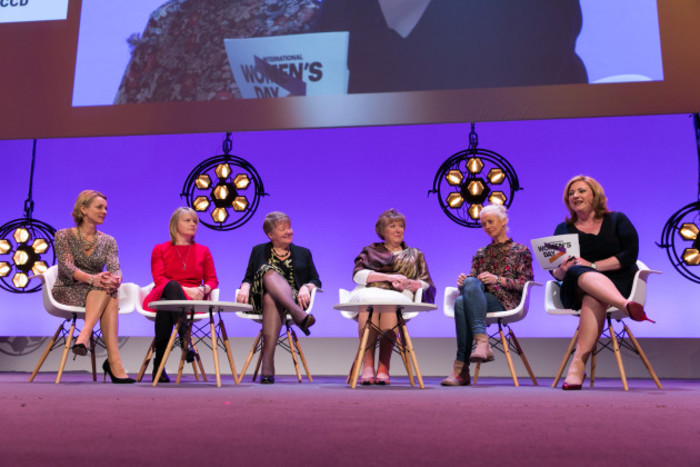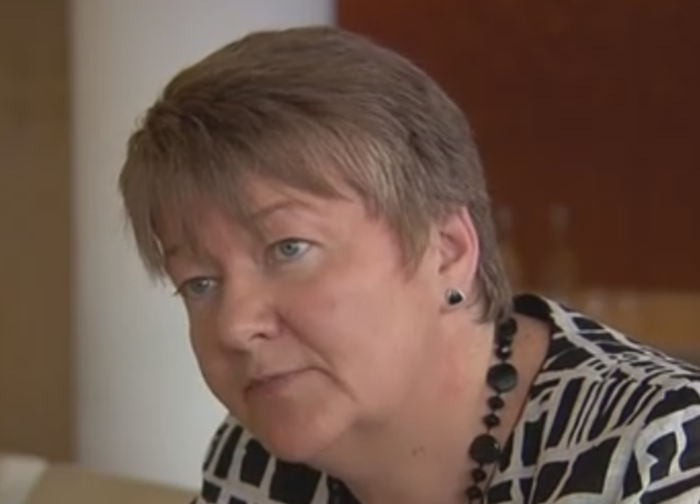'Some women don't even hit the glass ceiling. They're stuck on the floor'
The chair of ESB says women won’t go for a role unless they are 110% ready.
IT’S NOT JUST a glass ceiling that prevents women from rising through the ranks, it’s their own mindset.
That’s according to ESB chair Ellvena Graham, who said Irish women are prone to what has been dubbed the ‘sticky floor’ effect, which means they don’t push themselves to go for better jobs.
During her 30 years at Ulster Bank, Graham built up a lot of experience in senior management positions. She served as chief operating officer and head of operations in Northern Ireland before moving into her current role in 2015 as chair of ESB.
“I think it is probably a combination of the glass ceiling and a sticky floor, but definitely we hold ourselves back,” she told a crowd at an Accenture event organised to mark International Women’s Day (IWD).
“It has been described as a sticky floor where we ourselves don’t even go to the ceiling. In other words, we don’t apply for the jobs and we have to be 100% ready for something or 110% ready before we apply for a role.”
“There is that confidence needed to lift your feet off the floor, and if you hit the ceiling that’s a different matter altogether, but at least you’ve gone there.”
 Accenture IWD panel
Accenture IWD panel
Compared to the rest of the EU, Ireland fares better than most in terms of women in senior management positions.
Eurostat figures show roughly two in five management roles in Ireland are filled by women, compared to an EU average of 35%.
Sasha Wiggins, chief executive of Barclays Bank in Ireland, shared Graham’s views and said that women feel they need to “tick every box” before they apply for a role.
She cited research that has shown that one of the main barriers holding women back from applying for a job is that they take job specs at face value.
“We as women need to check ourselves and be bold and take decisions that put us in situations that we wouldn’t think we could be in,” Wiggins said.
“But I do think organisations have a duty to respect and understand that it’s an issue for women and to reach into the organisation to help them understand they can take on more.”
She added that she would never have considered herself qualified for her role as head of Barclays’ Irish operations until she was approached to consider the job.
“Barclays showed me the job criteria and asked me to have a look at it. I did and I said, ‘Well I can’t do about 80% of it.’
“I have never been a corporate banker, I’ve only ever worked in private banking, I’ve never run a balance sheet, never run a business end-to-end. But our talent team in the UK asked me to think instead about all the things I can do.”
 Ellvena Graham
Ellvena Graham
Despite the near equal ratio of women to men in senior management positions in the Republic, figures from Eurostat show that Ireland’s gender pay gap specifically at manager level stands at 16%.
This means women at management level earn €0.84 for every €1 that men do. Currently, the overall gender pay gap is 13.9%, while the EU average is 16.3%.
Correction: This article originally stated the gender pay gap for Irish women is 16%. This just reflects the pay gap at managerial level. The overall gender pay gap is 13.9%.





